Iraq Situation Report: March 24-25, 2015
March 25, 2015 - Sinan Adnan
Prime Minister Haidar al-Abadi has announced that the "last phase" of the Salah ad-Din operations has begun, likely in reference to the operation to retake Tikrit.

Prime Minister Haidar al-Abadi has announced that the "last phase" of the Salah ad-Din operations has begun, likely in reference to the operation to retake Tikrit.
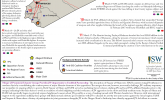
Merger of Prominent Islamist Groups Provides JN Opportunity to Establish Partnership: The absorption of Suqour al-Sham into HASI counters rising JN influence in northern Syria by consolidating the combat power of major Islamist elements of the opposition. The merger does not, however, necessarily challenge JN’s military supremacy nor jeopardize its ongoing efforts to govern.
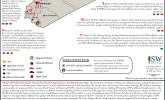
Merger of Prominent Islamist Groups Provides JN Opportunity to Establish Partnership: The absorption of Suqour al-Sham into HASI counters rising JN influence in northern Syria by consolidating the combat power of major Islamist elements of the opposition. The merger does not, however, necessarily challenge JN’s military supremacy nor jeopardize its ongoing efforts to govern.
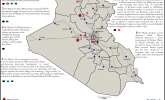
The deployments of ISF units from the south to various fronts in western and northern Iraq between December 2013 and the present has caused a security vacuum in the southern provinces.
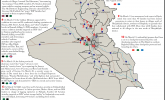
Iraqi Security Forces, Shi'a militias, and the Popular Mobilization have begun to shell Tikrit. Shelling may disrupt ISIS within the city, making further advances to clear ISIS possible. Shelling will also likely inflict civilian casualties, which may have divisive consequences within the Popular Mobilization.
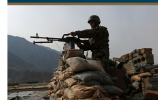
The success or failure of the U.S. mission in Afghanistan has reached a critical juncture. Far from defeated, the ongoing Afghan insurgency remains a serious challenge and threatens to reverse hard-won prior gains.
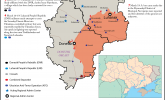
Amidst ongoing low-level fighting between Ukrainian and separatist forces, Ukrainian President Petro Poroshenko signed a law on March 18 which would grant limited autonomy to many areas under separatist control.
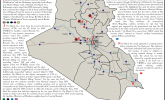
The role of Iranian-backed militias is introducing an obstacle for the Iraqi Government in its effort to reclaim the territories that fell out of its control. Since the fall of Mosul in 2014, these militias have played a crucial role in retaking areas from ISIS with minimal support from coalition air power and heavy reliance on Iranian support. The lack of precise coalition targeting is for the first time a limiting factor leading Iraqi commanders to halt the operation to retake Tikrit.
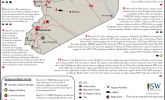
The regime’s claimed downing of an American predator drone may signify regime intent to assert its sovereignty in the context of U.S.-led coalition airstrikes.

Various Iraqi forces are pressuring ISIS on three different fronts, all of which are of strategic importance to the organization. ISIS will therefore likely attempt to escalate its attacks elsewhere to divert the resources of these forces.